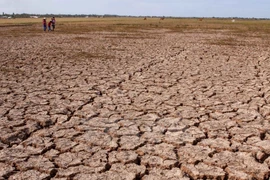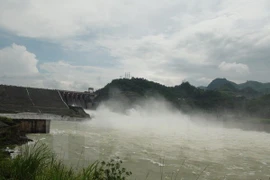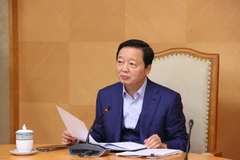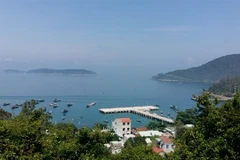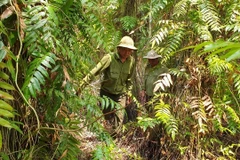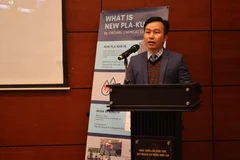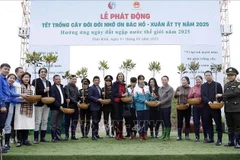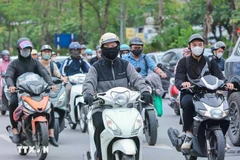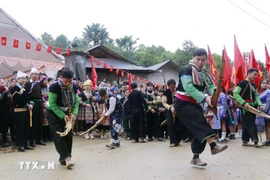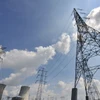Hanoi (VNA) – The water discharged from China’s Jinghong Hydropower Station to the lower reaches of the Mekong River is expected to arrive in Vietnam from April 4, according to the Ministry of Natural Resources and Environment’s Water Resources Management Department.
Together with the amount of water released from Laos’s dams, saltwater will be driven back towards the sea by around 20 km, and provinces along the Tien and Hau Rivers will get direct benefits.
However, the level of salinity in Bac Lieu, Ca Mau, and Soc Trang provinces is still high.
It is estimated that drought and saltwater intrusion in the Mekong Delta has caused freshwater shortages for 1 million locals and losses of about 700,000 tonnes of rice.
In response to Vietnam’s Ministry of Foreign Affairs’ diplomatic note requesting China to jointly cope with drought in the Mekong River basin, China has announced that it will release over 2,000 cubic meters of water per second from its Jinghong Hydropower Station from March 15 to April 10.
The regulation of water resources upstream will help address drought and salt intrusion in downstream areas.
Head of the Department for Water Resources Management Hoang Van Bay said China’s release of water downstream at the requests of Vietnam and the Mekong River Commission is a positive start of joint efforts to counter natural disasters in the region, especially in the context of millions of people along the Mekong river grappling with the most severe salt intrusion over the past century.
The Mekong River, known as the Lancang in China, is the common asset of six countries: China, Myanmar, Thailand, Laos, Cambodia and Vietnam.
The water usage from the river needs to follow the fundamental principles of the 1997 UN Convention on the Law of the Non-Navigational Uses of International Watercourses, as well as the Mekong River Agreement and other international practices. These agreements are fair provisions for the use of water in an equal, reasonable, harmoniously beneficial, and responsible manner between involved parties without causing significant damages for other nations.
Bay added that if all six countries in the Mekong sub-region join the Mekong River Commission, there will be more favourable conditions for the building of a joint mechanism for the better management, exploitation, use and protection of Mekong water resources. It will also better ensure the observance of international principles and standards in the field as well as the sharing of benefits and responsibilities among involved countries.-VNA




